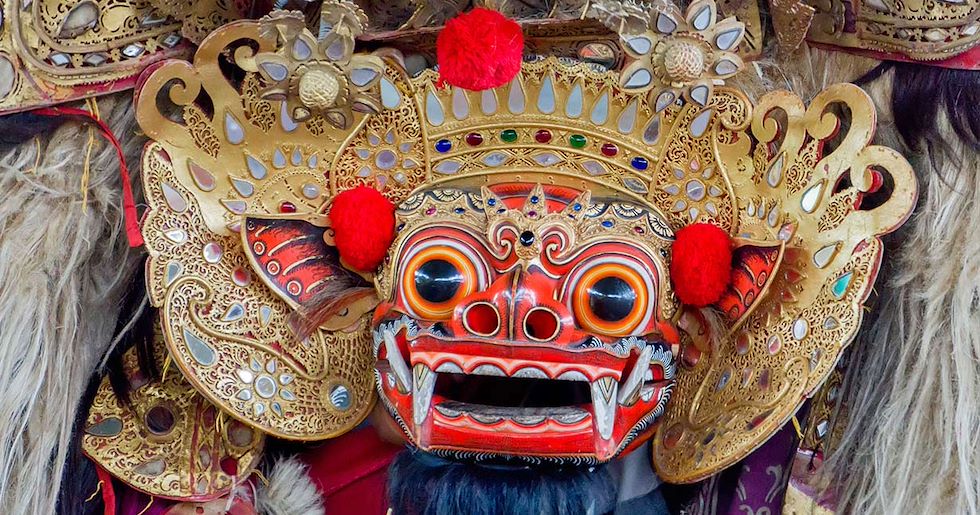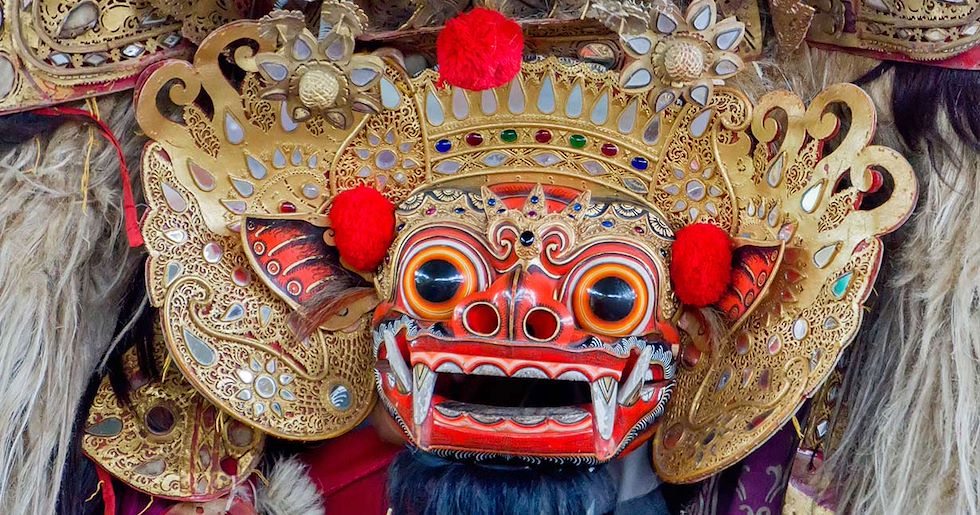
Exploring the culture of Bali is an adventure like no other. Whether you are a local, an avid traveler, or just curious to learn more about this unique island, diving into Balinese culture will give you an unforgettable experience. From its captivating temples, intricate art forms, and unique customs to its vibrant culture, a journey through Balinese culture will leave you with a newfound appreciation of the Balinese way of life. With this blog post, we’ll take you on a journey through the mezmerizing culture of Bali, introducing you to the island’s ancient traditions and customs that make it so unique.
Cheap flights and hotels from www.flighthoteltravel.com.
To find the cheapest flight and accomodatin in Bali Try www.flighthoteltravel.com
What is Balinese culture?
Balinese culture is an incredibly unique, vibrant and diverse culture with a long and rich history. This culture has been shaped by centuries of Hindu and Buddhist influence and developed into something truly unique. From the traditional temples, to the art, to the music and cuisine, Balinese culture is truly a sight to behold.
The most influential aspect of Balinese culture is the strong belief in spiritualism and nature. This influence can be seen throughout the island, from the intricate architecture of the temples to the offerings and prayers made every day. It is also reflected in their rituals which are integral to their beliefs. The most popular ritual is Nyepi Day, also known as the “Day of Silence”. On this day, people observe silence and abstain from any physical activities or work for 24 hours.
The rich musical heritage of Bali can be seen in their traditional gamelan music, an ensemble of instruments including xylophones, gongs, drums and flutes. The gamelan is used in both ceremonial and recreational contexts, from festivals to religious ceremonies. Similarly, Balinese dance has also been influenced by their Hindu and Buddhist roots. These dances tell traditional stories and can be enjoyed at special events or performed in temples.
For visitors looking to explore Bali’s culture further, there are plenty of opportunities to experience it up close. You can take a cooking class to learn how to make some of Bali’s famous dishes, visit one of the many art galleries to admire traditional Balinese paintings, or join a tour of some of the incredible temples on the island.
No matter how you decide to experience it, Balinese culture is sure to be an unforgettable experience that will stay with you for life.
How did Balinese culture develop?
Balinese culture is a unique blend of Indonesian and Hindu traditions, with influences from Chinese, Dutch, Portuguese, and Arab traders. The Balinese people have had a long history of interaction with outsiders, which has enabled them to develop a distinct and vibrant culture that continues to shape the modern landscape of the island.
The Balinese are believed to be descendants of the Austronesian peoples who originally settled the Indonesian archipelago thousands of years ago. Over time, the Balinese assimilated some aspects of Hinduism from India and embraced elements of Buddhism as well. This synthesis of Indian and Chinese cultural influences gave rise to a unique art and architecture style that is still evident in Balinese temples and monuments today.
With the arrival of foreign traders in the sixteenth century, Balinese culture also began to incorporate aspects of European and Arab customs. The development of new styles of painting, music, and dance can be traced back to these foreign influences. Additionally, the local population adopted elements of Western clothing and cuisine, furthering the diversity of Balinese culture.
Today, Balinese culture remains a fascinating mix of old and new, reflecting centuries of adaptation and exchange with foreign cultures. Traditional ceremonies and rituals continue to honor gods, heroes, and ancestors, while cutting-edge technology has created new forms of expression for artists and performers. A journey through Balinese culture is sure to be an unforgettable experience.
What are some of the key elements of Balinese culture?
When visiting Bali, it’s important to understand the culture of the island in order to have the best experience. Balinese culture is filled with a rich history and diverse traditions that have been passed down through generations. Here are some of the key elements of Balinese culture to be aware of.
First, religious ceremonies and customs are important to the Balinese. The majority of people on the island practice Balinese Hinduism, a distinct version of Hinduism that is different from the practices in India. Balinese Hinduism is based around ancestor worship and revering gods and spirits. Therefore, you will see a lot of offerings made in temples and elsewhere throughout the island.
Second, art and music are an integral part of Balinese culture. Traditional instruments such as gamelan and the ceremonial kulintang are used for rituals and ceremonies, while modern art is also popular. You can find unique artwork, sculptures, paintings and other pieces on display throughout the island.
Third, hospitality is a cornerstone of Balinese culture. Balinese people pride themselves on being friendly and welcoming to visitors, and showing hospitality is one way to show respect for their culture. You can expect lots of warm greetings when visiting Bali.
Finally, food is an important part of Balinese culture. Traditional dishes are often spicy and include ingredients such as coconut milk, chili peppers, ginger, garlic and lemongrass. Traditional snacks like urap and lawar are also popular. No visit to Bali would be complete without trying some local cuisine!
Understanding the key elements of Balinese culture can help you make the most of your visit to the island. With a better understanding of the culture, you can appreciate the customs and traditions more fully, leading to an even richer experience.
How does Balinese culture differ from other Indonesian cultures?
The culture of Bali is vastly different from other Indonesian cultures and has been shaped by centuries of Indian, Chinese and even Dutch influences. Bali is considered the center of Hindu culture in Indonesia, a stark contrast to the predominantly Muslim population of the rest of the country. Balinese culture is known for its vibrant festivals, elaborate religious rituals, colorful ceremonies, intricate arts, and music.
Unlike most of Indonesia, Balinese society is organized into clans or banjar. Each banjar is responsible for organizing important events such as weddings, funerals, and religious festivals. There are also rules that govern behavior within each banjar, including laws against gambling and drinking alcohol. This emphasis on order and tradition is an integral part of Balinese culture.
In addition to its unique social structure, Balinese culture is known for its traditional dances, which combine elements of story-telling with graceful movements. Gamelan music is also an important part of Balinese culture; this type of music is typically performed with a large ensemble of percussion instruments. Traditional Balinese cuisine is also distinct from other Indonesian dishes, featuring spices like galangal, ginger, and chili peppers.
Overall, Balinese culture is a captivating blend of traditions from around the world. From its intricate art to its dynamic music and dance, Bali truly offers an experience unlike any other.
What are some of the unique aspects of Balinese culture?
Balinese culture is unlike any other. Rich in history and spirituality, the island of Bali offers a unique combination of traditional customs, rituals and ceremonies that have been passed down through the generations. From intricate Hindu-Buddhist temples to breathtaking performances of traditional dances, there are many aspects of Balinese culture that make it unique.
One of the most distinctive features of Balinese culture is their artistry. It can be seen everywhere from their beautifully decorated temples to the hand-crafted items they create. Carvings, sculptures and paintings are often used to decorate homes and buildings and even serve as offerings at local ceremonies. Traditional Balinese dances are another popular form of art, with some performances featuring hundreds of dancers and musicians performing intricate choreography in ornate costumes.
Religion plays a major role in Balinese culture, and the majority of people living on the island practice either Hinduism or Buddhism. There are countless temples scattered across the island, and they often play host to colorful festivals, processions and ceremonies. Both religions are deeply intertwined with local culture, with beliefs and traditions playing a major role in everyday life.
Despite its uniqueness, Balinese culture is very welcoming to visitors. Locals are often more than happy to share their customs and beliefs with travelers, inviting them to take part in ceremonies and festivals or learn more about the intricacies of their traditions. Visiting Bali is an incredible opportunity to experience a truly unique culture that has been around for centuries.
How has Balinese culture been influenced by outside cultures?
Balinese culture is an incredibly rich and vibrant one that dates back centuries. The region has had a tumultuous history, being colonized by the Dutch and Chinese, among others, throughout its long history. This influx of foreign cultures has left its mark on Balinese culture, blending together the various influences to create a unique and fascinating mix.
Perhaps the biggest impact on Balinese culture has been from Hinduism, which was introduced to the island by Indian traders during the 9th century. This religion has become deeply embedded in Balinese life, reflected in its numerous temples, rituals, ceremonies, and artworks. Buddhism also left its mark in Bali as well, with Chinese immigrants bringing their beliefs and practices to the region.
In recent years, global tourism has had a great influence on Balinese culture, with people from all around the world coming to experience its natural beauty and exotic customs. Tourists bring with them their own ideas and ways of living, which inevitably get absorbed into the local culture. For example, English is now commonly spoken in Bali, as well as Western music, fashion trends, and culinary influences.
All in all, Balinese culture has been shaped by outside influences throughout its history, but it remains distinctly unique. Its combination of religious and cultural customs makes it an incredibly vibrant place to visit and explore.
What are some of the challenges facing Balinese culture today?
Balinese culture has long been one of the world’s most unique and beautiful cultures, with a rich history spanning centuries. However, due to the ever-increasing rate of globalization and rapid development, it is now facing a number of challenges that could potentially threaten its future.
One of the biggest challenges facing Balinese culture is the loss of traditional values and beliefs. The proliferation of modern consumerism and Westernization has caused many Balinese to prioritize materialistic values over traditional ones, resulting in a weakening of cultural identity and social cohesion. This shift has also led to a decrease in traditional crafts and knowledge, as the younger generation is no longer taught or encouraged to preserve their cultural heritage.
The tourism industry has also brought a new set of problems to Balinese culture. While tourism can be beneficial in providing job opportunities and economic growth, it has also caused overcrowding in certain areas, leading to environmental degradation and damage to traditional Balinese architecture. Furthermore, tourists may not always be aware of or respectful of the local customs, thus putting further strain on the traditional way of life.
Finally, Balinese culture is also facing threats from outside forces. The island nation has been forced to face geopolitical tensions with neighboring countries, and there have been reports of exploitation of its resources by foreign companies. In addition, the growth of fundamentalist religious movements has created tensions between the country’s diverse religious groups, threatening the harmony that is so characteristic of Balinese culture.
Overall, Balinese culture is faced with a complex set of challenges that need to be addressed if it is to survive and thrive in the years to come. By preserving traditional values and beliefs, respecting the environment, and creating a more inclusive and tolerant society, the people of Bali can ensure that their unique culture will continue for generations to come.
For Cheap Flights and Accommodation Click Here





